7 Benefits Of Honey, Nutrition, Types, & Precautions To Follow
Unlock the health secrets of this earthly nectar and make every spoonful count.
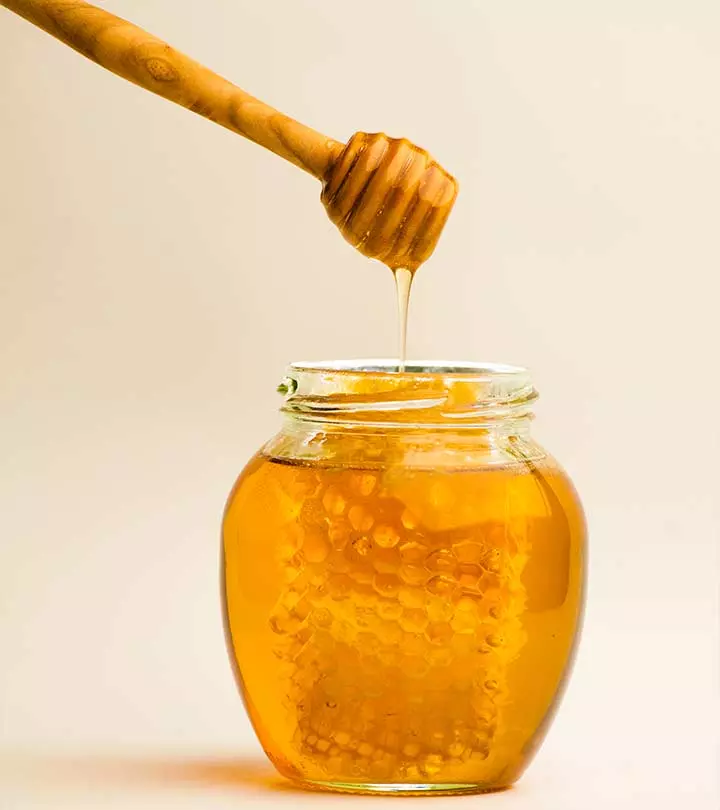
Image: Shutterstock
Honey is one of the most commonly used natural sweeteners globally. It is a go-to alternative for sugar since it provides more benefits. It has a wide range of nutrients like folate, flavonoids, manganese, and iron that can positively affect many aspects of your health. This article explores the wide range of benefits honey can offer when added to your daily diet. Keep reading to understand the rewards of using honey every day and certain home remedies to help solve common health issues.

In This Article
Raw Honey: An Overview
The purest form of honey is when it is raw, directly from the hive. Worker bees have to drain the nectar from about two million flowers to produce one pound of honey. Unadulterated and unprocessed honey has all of its properties intact. For example, honey is rich in antibacterial and antioxidant properties and is an abundant source of nutrients. These nutrients go directly from the honey into our bloodstream (1).
While the extraction process of honey is the same everywhere, there is a difference in how it is bottled as a final product.
- After filtering it once, some beekeepers bottle the pure honey to remove any beeswax or contaminants like insect pieces. This honey is raw. Raw honey tends to crystalize at low temperatures. It has a more dense nature, is more opaque, and contains some good yeast.
 Did you know?
Did you know?- Some processors filter raw honey further, removing the yeast and air bubbles left behind by the first round of filtration. This honey has a longer shelf life and is more appealing to the buyer but has lost most of its nutritional value.
In the following section, we discuss the important benefits of honey.
Key Takeaways
- Honey is a natural sweetener with a rich nutrient profile that benefits your health in many ways.
- It is rich in antioxidants and has antibacterial properties.
- Honey may help reduce the risk of heart damage, accelerate wound healing, and decrease blood sugar levels.
- However, people with diabetes should keep their honey intake in check.
Nutritional Facts About Honey
The following is the nutritional profile of a 21 g serving (1 tablespoon) of raw honey (2).
- Honey is the source of these compounds:
| Compound | Amount |
|---|---|
| Energy | 63.8 kcal |
| Carbohydrates | 17.3 g |
| Total sugars | 17.2 g |
| Of which fructose | 8.59 g |
| Of which glucose | 7.52 g |
| Of which sucrose | 0.187 g |
- It has the following minerals:
| Mineral | Amount (in mg) |
|---|---|
| Manganese | 0.017 |
| Zinc | 0.046 |
| Iron | 0.088 |
| Magnesium | 0.42 |
| Sodium | 0.84 |
| Phosphorus | 0.84 |
| Calcium | 1.26 |
| Potassium | 10.9 |
- It also has trace amounts of copper, selenium, and fluoride, which are all antioxidant minerals.
- Honey also contains trace amounts of fiber (0.042 g).
- Honey has little amounts of folate and vitamins B3, B12, and C.
 Trivia
TriviaHoney is a healthy source of these nutrients. Regular intake may offer some important benefits. We discuss the same in the next section.
Benefits Of Honey
1. May Help Reduce Risk Of Cardiovascular Disease
Honey is a source of phenols and flavonoids that are proven antioxidants. Phenols have antioxidant and vasorelaxant properties that may help fight oxidative stress on the heart and blood vessels (3).
Relaxation of blood vessels reduces the pressure on the heart to pump blood (3).
Honey is rich in antioxidants. Research suggests that antioxidant therapy may help reduce the risk of heart damage (3).
2. Honey Can Help Heal Wounds
Honey may accelerate the wound-healing process. This is true for most wounds, including burns. Raw honey has hydrogen peroxide that acts as a natural antibacterial agent. It wards off any bacterial infection and kills any bacteria already present on/in the wound (4).
The flavonoids in honey have anti-inflammatory properties that help heal burns faster and reduce flaring.
3. May Help Reduce Bad Cholesterol
The flavonoids in honey may help prevent the oxidation of bad cholesterol (LDLs). When LDLs are oxidized, they form foam cells that could lead to atherosclerosis (the closing up of blood vessels). Atherosclerosis is one of the major reasons for heart attacks and strokes (5).
More information is needed to further understand how honey works in reducing bad cholesterol levels.
4. May Help Reduce Stroke Risk In Postmenopausal Women
Postmenopausal women are at a higher risk of developing chronic heart disease and stroke. As per a large study, consuming flavonoids may reduce this risk in postmenopausal women (6). While honey was not used in the study, the flavonoids it contains are likely to offer similar benefits. More research in this regard is warranted.
5. Honey May Treat Diabetes
Honey is a sweetener with a relatively low glycemic index. Hence, the release of energy from honey into the bloodstream is slower than that from granulated sugar. As a result, honey could help manage Metabolic Syndrome (MetS), an unfortunate cluster of diseases including obesity, hypertension, dyslipidemia, and diabetes mellitus (7).
Some research suggests that honey may also reduce blood sugar levels and the risks associated with metabolic syndrome (7).
The low GI of honey may help reduce excess weight gain (7).
6. May Reduce Cough And Congestion
The antimicrobial properties of honey act against the infections that may cause cough. One teaspoon of honey ingested directly has been shown to do wonders in treating excessive cough in children. (8) The antioxidant properties of honey may help clear out lung congestions.
7. May Promote Skin Health
Honey also contains some calcium. This nutrient, when coupled with a healthy diet, can help maintain skin health. It also may help fight eczema and aid cell repair (9).
Morgan, a travel blogger, shared her encounter with honey in her blog. She said, “The cystic acne that had been big, sore, red lumps on my neck had gone down and were no longer raised and my skin felt better than it has done in the last six months (i).” Two weeks later, she noted, “The acne is not 100% gone, but it has cleared up remarkably.”
These are the important health benefits of honey. There are three major types of honey to choose from. We discuss this further in the next section.
Types Of Honey: Which Honey Is Best For You
Honey has over 300 types in cultivation. But we have listed the most important of those below.
1. Manuka Honey: This honey is the product of worker bees feeding on the nectar from the Manuka bushes native to New Zealand. It is also called non-peroxide honey because it lacks the hydrogen peroxide commonly found in many honey varieties.
But even without the peroxide, manuka honey has a low pH and a high sugar content and may work against the growth of bacteria (2).
2. Acacia Honey: It has a sweet floral flavor and comes from the black locust tree, a member of the same family as the acacia tree. It is high in fructose and low in glucose and is one of the safer sweeteners people with diabetes can enjoy. It also has an antioxidant compound called chrysin that has been studied to reduce the risk of certain types of cancer (10).
3. Sage Honey: It has a sweet, clover-like taste that is mild. It is produced when bees drain nectar from sage flowers. Although this honey does not contain a lot of fiber, it has been proven to help better digestion. Its prebiotic property increases the production of short-chain fatty acids and the growth of beneficial bacteria in the colon. This reduces fat absorption and may promote one’s overall health (11).
You can check out other different types of honey here.
 Fun fact
Fun factHome Remedies With Honey
1. For Better Skin
What you will need
- 2 tablespoons of honey
- ⅓ tablespoon of pure cinnamon powder
Method
- Mix the honey and cinnamon powder.
- Apply a thick layer of the mixture to the body.
- Leave it on for 8 to 10 minutes.
- Rinse the skin and pat it dry.
This method works wonders for dry skin. It may also provide relief for people with eczema or psoriasis.
Honey may also work as a good hair conditioner (12). Here is how you can use it for the same.
2. For Well-Conditioned, Smooth, And Healthy Hair
What You Will Need
- 2 parts honey
- 1 part olive oil
- A shower cap
Method
- Start by cleaning and dampening your hair.
- Mix the honey and olive oil and heat the mixture for about 20 seconds.
- Allow it to cool a bit (so that it is not too hot). Mix it once again.
- Apply the mixture starting from the root to the tip. Use your fingertips to massage it into the scalp.
- Cover your hair with a shower cap.
- Leave it on for 30 minutes.
- Gently rinse with a mild shampoo and pat your hair dry.
Using fingertips to massage the scalp increases blood flow to the roots and boosts the absorption of honey and olive oil. Covering your hair ensures that moisture stays intact.
3. As Face Mask
What You Will Need
- 1 tablespoon of raw honey
- 1 teaspoon of yogurt
- A pinch of turmeric powder
Method
- Start by cleansing your face to maximize the effectiveness of the mask.
- Mix all the honey, yogurt, and turmeric powder to form a smooth paste.
- Apply the paste evenly to your face and leave for 15-20 minutes.
- Gently rinse it off with warm water and pat your face dry with a clean towel.
- Follow up with a moisturizer to lock in the hydration.
Honey as a face mask is generally suitable for most skin types. It has antimicrobial and anti-inflammatory properties that may help you keep your skin acne-free (13). In fact, using honey for glowing skin is a natural remedy loved by many, as it is deeply nourishing and hydrating, giving you a radiant complexion. You can use the mask once or twice a week for soft, glowing skin.
Honey is generally safe for use. But you should still keep a few things in mind while using it. Check them out below.
Precautions While Using Honey
The most important precaution to bear in mind when using honey is pollen allergy. If you notice any allergic reaction, immediately take prophylactic measures and consult your doctor. It is important to remember that because honey can cause botulism, it should never be administered to infants younger than one year of age (14). Ensuring proper safety measures can help avoid potential health risks while enjoying the benefits of honey.
Another important precaution is to keep your sugar intake in check. Even if less than granulated sugar, honey still contains glucose. People with diabetes must keep in mind that honey might be harmful if consumed every day.
Honey benefits you in multiple ways if included as a part of your regular diet. These benefits can be attributed to its amazing nutrients. Honey reduces the risk of cardiovascular diseases, accelerates the wound healing process, reduces LDL cholesterol levels, and reduces the risk of stroke in postmenopausal women. It also helps manage diabetes, promotes skin health, and reduces cough and congestion. You can include honey in your skin and hair care regimens as well. But, consuming it in excess leads to high sugar intake. Hence, caution is advised. So consume it in moderation to reap its benefits.
Frequently Asked Questions
Is honey good for sleep?
Yes. In one study, a mixture of honey and milk was found to help improve sleep quality in people with acute coronary syndrome (14). However, more studies are warranted to understand the benefits of honey in healthy individuals.
What happens if you take honey every morning?
Taking honey on an empty stomach every morning helps prevent stomach discomfort, constipation, and diarrhea (15). It is also believed that it can keep the body free of toxins.
Is drinking hot water with honey harmful?
Yes. The use of honey in any heated form is harmful. Adding honey to water at high temperatures can break down enzymes and produce hydroxymethylfurfural (HMF), which is believed to increase cancer risk.
Discover the surprising health benefits of honey with this informative video. Explore the top 14 health benefits of this golden elixir, which can relieve sore throats and boost energy.
Personal Experience: Source
StyleCraze's articles are interwoven with authentic personal narratives that provide depth and resonance to our content. Below are the sources of the personal accounts referenced in this article.
(i) WHY I AM OBSESSED WITH HONEY!https://ecobackpacker.wordpress.com/2014/04/23/why-i-am-obsessed-with-honey/
References
Articles on StyleCraze are backed by verified information from peer-reviewed and academic research papers, reputed organizations, research institutions, and medical associations to ensure accuracy and relevance. Read our editorial policy to learn more.
- Honey and Health: A Review of Recent Clinical Research
https://www.ncbi.nlm.nih.gov/pmc/articles/PMC5424551/ - Honey
https://fdc.nal.usda.gov/fdc-app.html#/food-details/169640/nutrients - The Potential Role of Honey and its Polyphenols in Preventing Heart Diseases: A Review
https://www.ncbi.nlm.nih.gov/pmc/articles/PMC3005390/ - Bioactives from Bee Products and Accompanying Extracellular Vesicles as Novel Bioactive Components for Wound Healing
https://www.mdpi.com/1420-3049/26/12/3770 - Flavonoids inhibit the oxidative modification of low density lipoproteins by macrophages
https://pubmed.ncbi.nlm.nih.gov/2344371/ - Dietary Flavonoid Intake and Risk of Cardiovascular Disease in Postmenopausal Women
https://academic.oup.com/aje/article-lookup/doi/10.1093/oxfordjournals.aje.a009738 - A Review on the Protective Effects of Honey against Metabolic Syndrome
https://www.ncbi.nlm.nih.gov/pmc/articles/PMC6115915/ - Honey for treatment of cough in children
https://www.ncbi.nlm.nih.gov/pmc/articles/PMC4264806/ - Role of Micronutrients in Skin Health and Function
https://www.ncbi.nlm.nih.gov/pmc/articles/PMC4428712/ - Acacia honey and chrysin reduce proliferation of melanoma cells through alterations in cell cycle progression
https://pubmed.ncbi.nlm.nih.gov/20811719/ - Honey as a Complementary Medicine
https://www.ncbi.nlm.nih.gov/pmc/articles/PMC5406168/ - Medicinal and cosmetic uses of Bee’s Honey – A review
https://www.ncbi.nlm.nih.gov/pmc/articles/PMC3611628/ - Honey: A therapeutic agent for disorders of the skin
https://www.ncbi.nlm.nih.gov/pmc/articles/PMC5661189/ - Association between honey consumption and infant botulism
https://pubmed.ncbi.nlm.nih.gov/12432974/ - Effect of milk-honey mixture on the sleep quality of coronary patients: A clinical trial study
https://pubmed.ncbi.nlm.nih.gov/30390870/ - Biological action and health benefits of honey, propolis and royal jelly: An overview
https://www.researchgate.net/publication/356160918_Biological_action_and_health_benefits_of_honey_propolis_and_royal_jelly_An_overview087
Read full bio of Tracy Tredoux
Read full bio of Gayathri Vijay
Read full bio of Ravi Teja Tadimalla
Read full bio of Moksha Gandhi







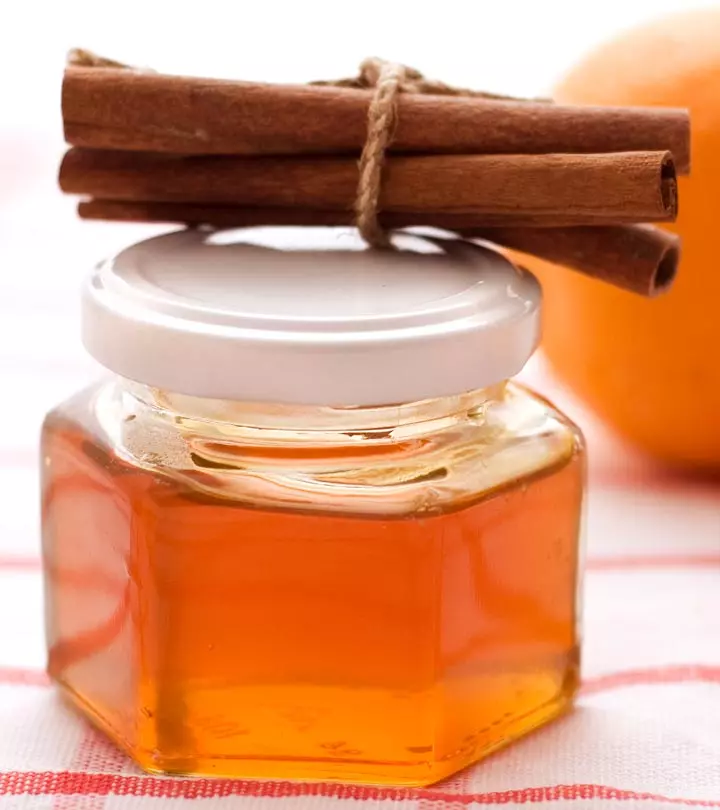
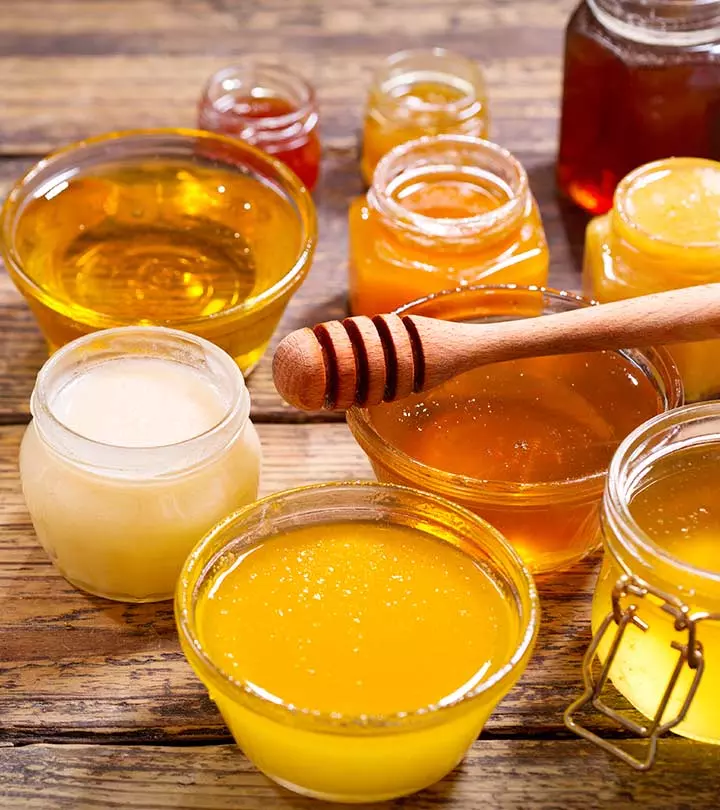
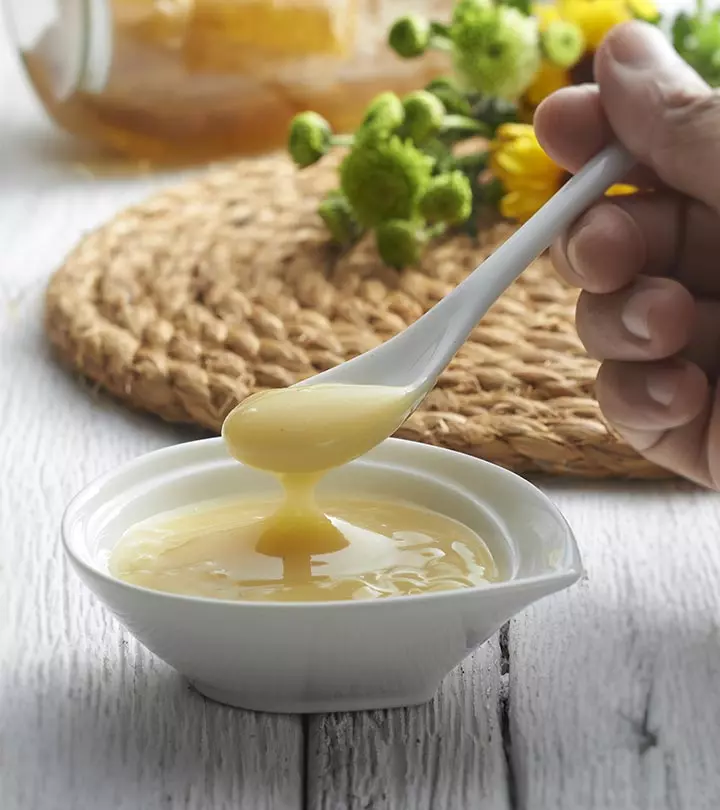
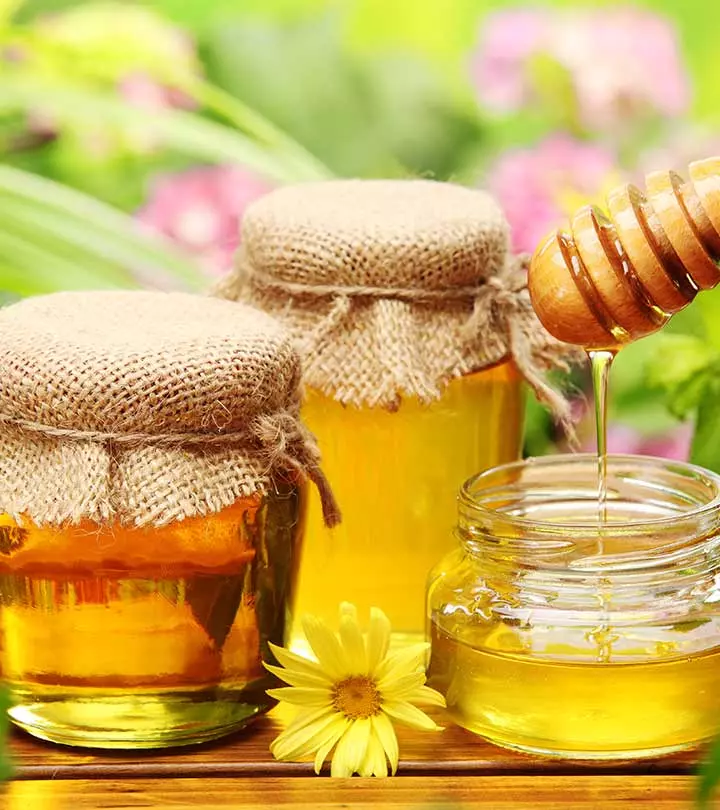
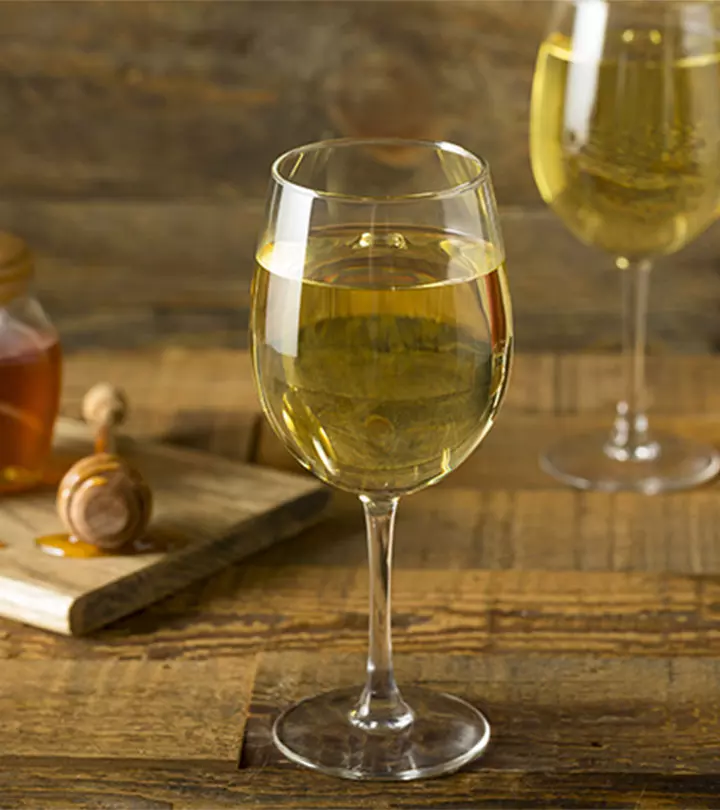


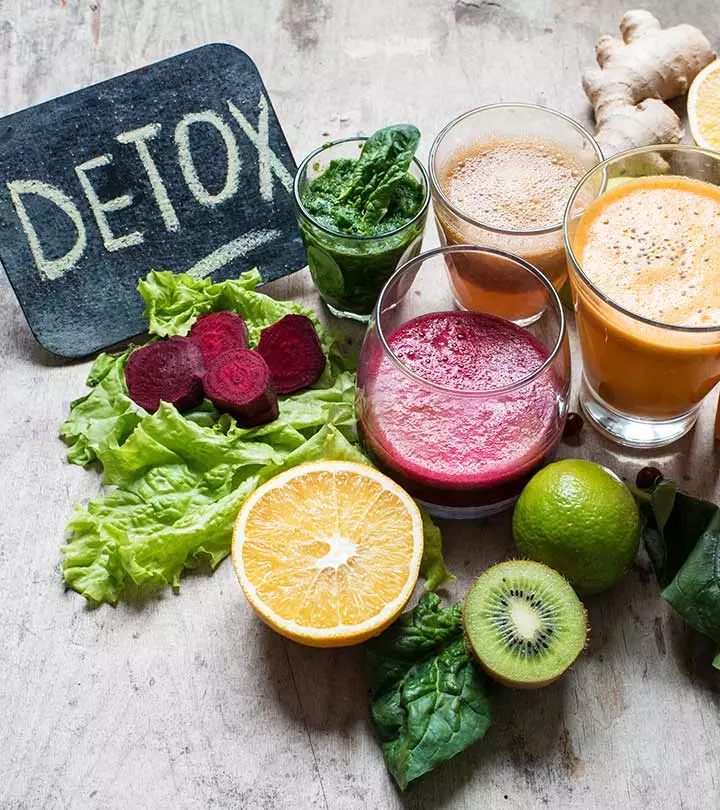
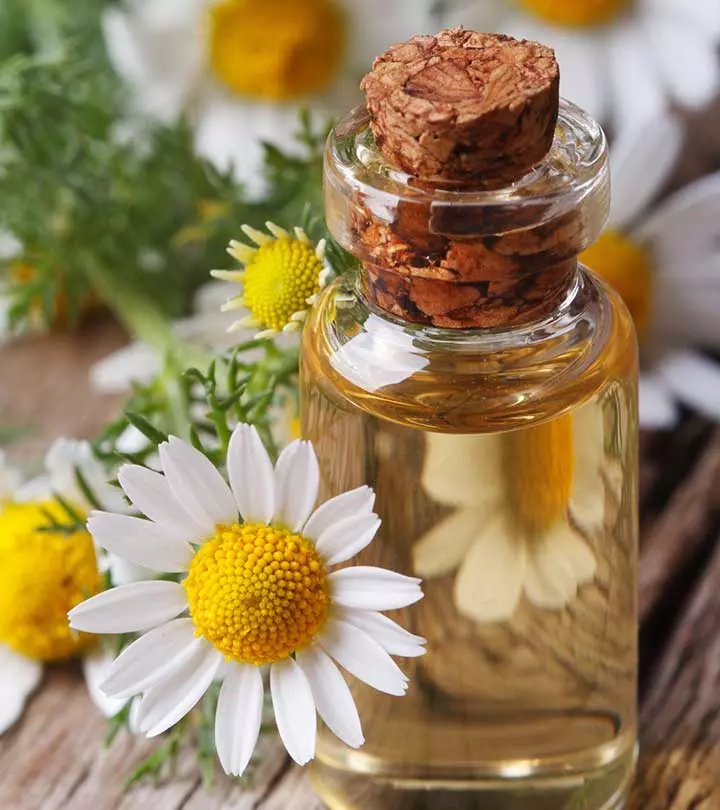
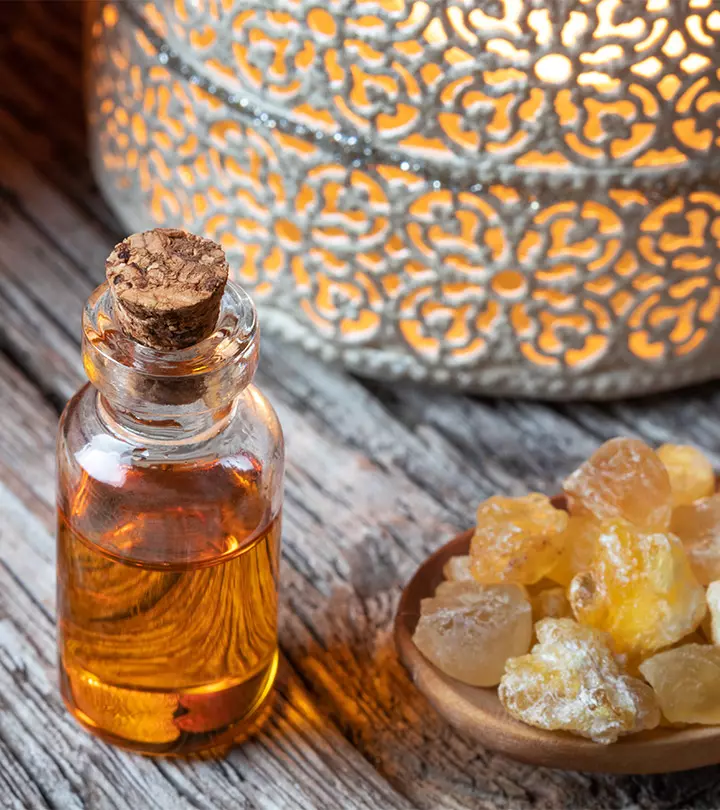
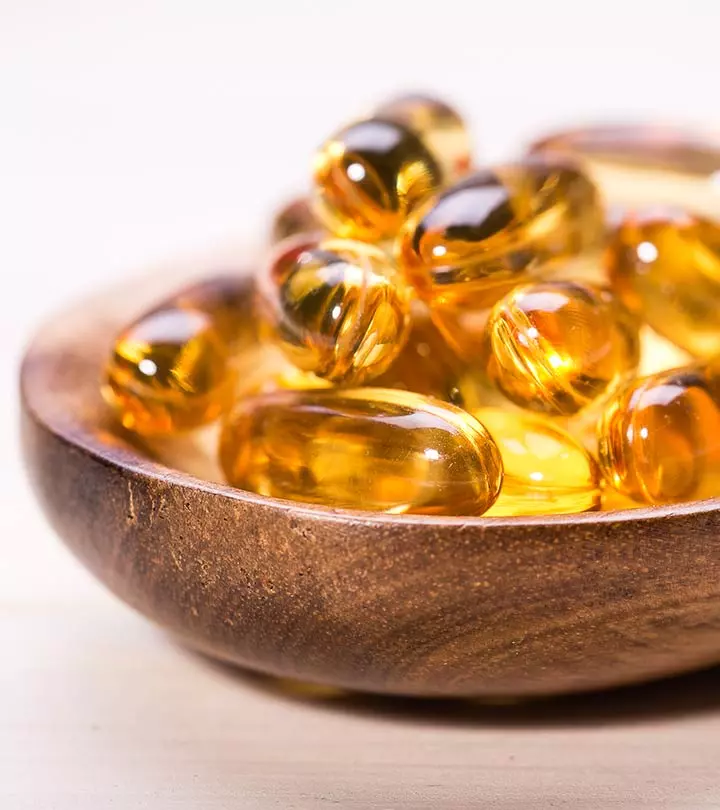
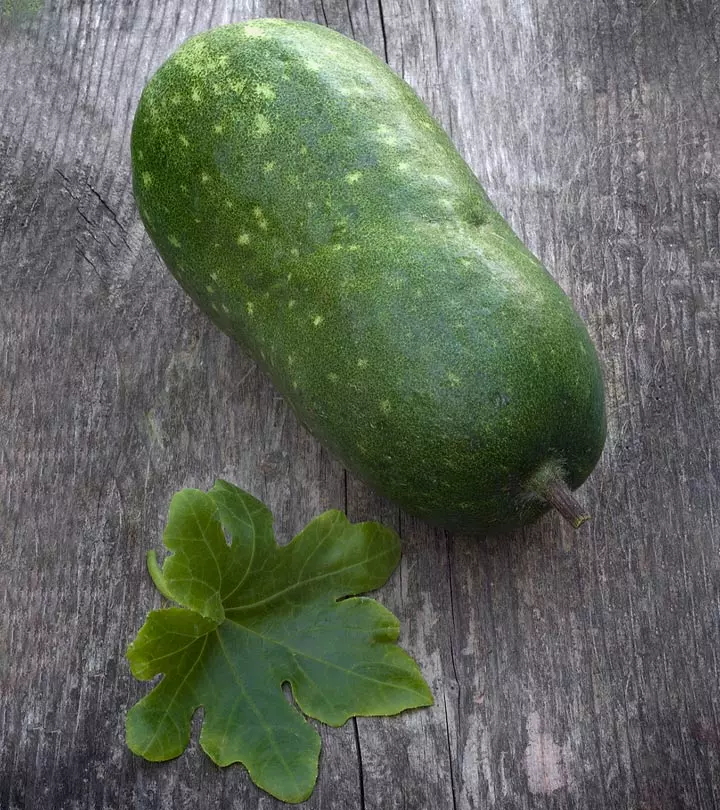



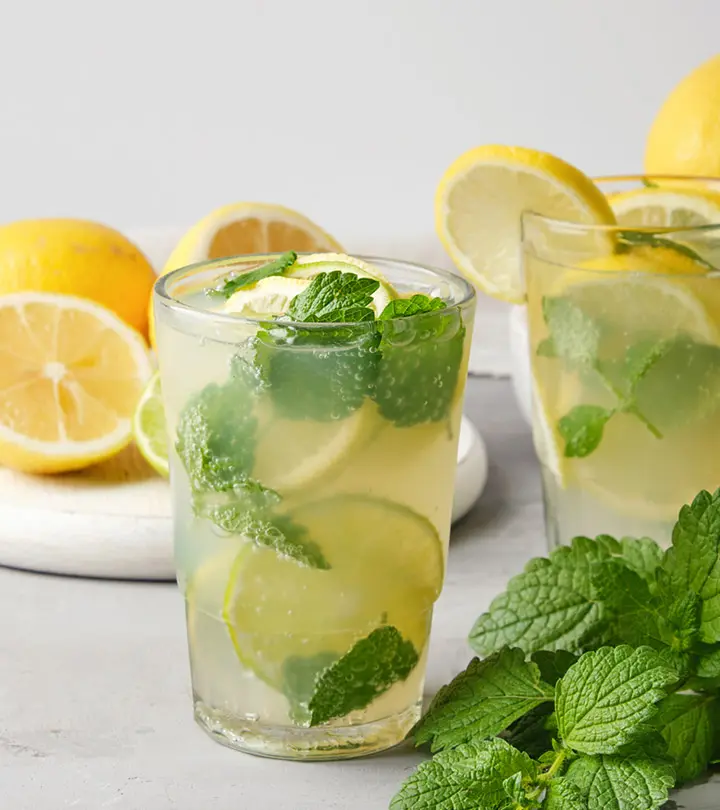
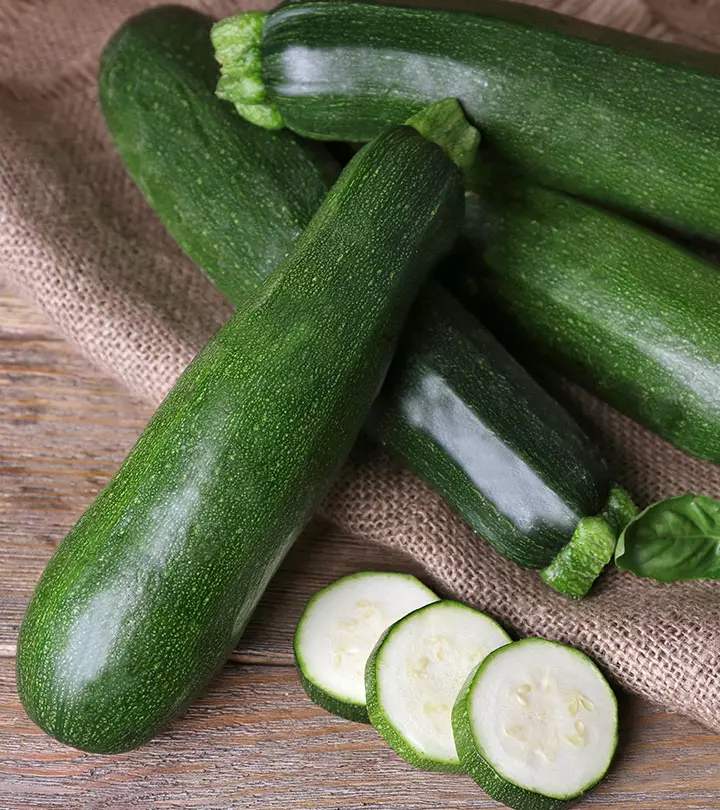

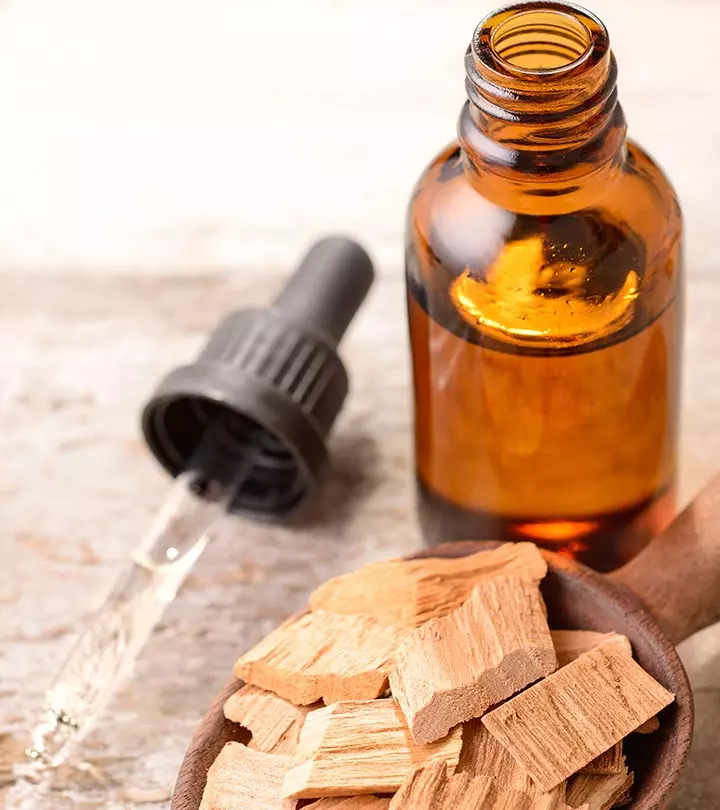
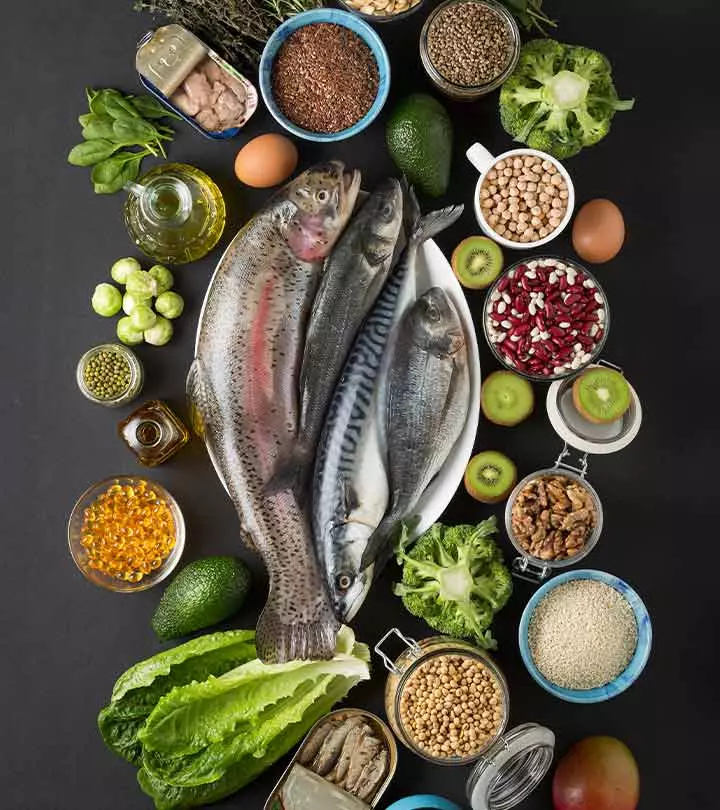
Community Experiences
Join the conversation and become a part of our empowering community! Share your stories, experiences, and insights to connect with other beauty, lifestyle, and health enthusiasts.